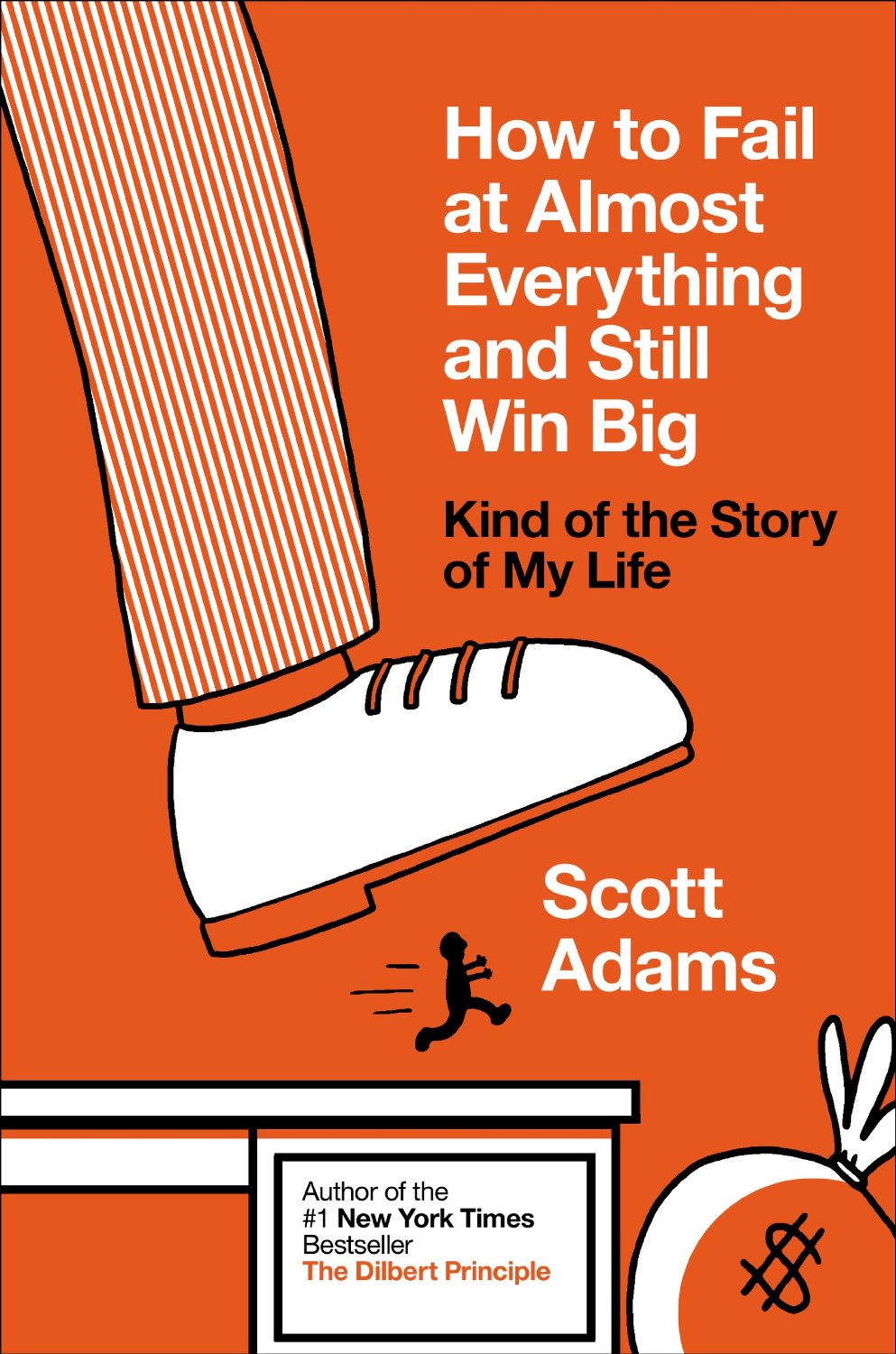Goals Are For Losers
I picked up a book which was mischievously disguised as an autobiography. Since it was about Scott Adams, the creator of Dilbert, I thought it would be funny. It wasn't, but it changed the way I think about life.
Also it turns out this book is more of a self-improvement book in which he shares his views and advice on life and success using anecdotes rather than an autobiography.
One of his main points is:
Goals are for losers.
He explains whenever you set a goal, you're going to be behind that goal. You're always in a stage of losing until you accomplish that goal. That's if you do. It's not good to live life constantly a "loser". It's demoralising. And even when you reach that goal, suddenly your purpose is gone and you'll feel empty.
Instead of goals, have a system. A system is something you can do everyday to increase your chance of success. By using a system, you won't feel bad for not meeting your goal, but rather feel good about doing exactly what you intended to do.
Example: If your goal is to lose 50 pounds, a system is exercising everyday and eating well.
Some quotes from "How to Fail at Almost Everything and Still Win Big: Kind of the Story of My Life" by Scott Adams:
To put it bluntly, goals are for losers. That's literally true most of the time. For example, if your goal is to lose ten pounds, you will spend every moment until you reach the goal-- if you reach it at all -- feeling as if you were short of your goal. In other words, goal-oriented people exist in a state of nearly continuous failure that they hope will be temporary. That feeling wears on you. In time, it becomes heavy and uncomfortable. It might even drive you out of the game.
...
If you achieve your goal, you celebrate and feel terrific, but only until you realize you just lost the thing that gave you purpose and direction. Your options are to feel empty and useless, perhaps enjoying the spoils of your success until they bore you, or set new goals and reenter the cycle of permanent presuccess failure.
...
Systems people succeed every time they apply their systems, in the sense that they did what they intended to do. The goals people are fighting the feeling of discouragement at each turn. The systems people are feeling good every time they apply their system. That's a big difference in terms of maintaining your personal energy in the right direction.
In the book he explains in more detail about what makes a system. The minimum requirement of a system is that a reasonable person using it can make it work. For example, playing the lottery everyday is not a system.
That's the main take-away from the book, but I've learned he's not just a smart and witty cartoonist, but also a driven entrepreneur and tech guy. It takes a lot of talent to make observations, extract truth, and then succinctly describe it in a new way.
He has a lot of other great observations in the book including:
- Passion is bullshit - similar to Mark Cuban's blog post.
- Positive attitude - exercise, food, and sleep. Avoid overexposure to depressing news, music, movies, etc.
- Number one metric to work on is energy - optimise this metric and it makes everything work better and faster.
- Every skill you learn doubles your chance for success.
- 80% of happiness is easy, 5 things: eat right, exercise, get enough sleep, daydream an incredible future, flexible schedule (do things when you want to do it). If you want the other 20%, you might want to check out this course on edX called "The Science of Happiness" but I'm thinking 80% is good enough.
It's a pretty awesome book and I highly recommend it. It's made me a lot happier and productive. I've been telling all my friends about it and lecturing them about goals vs. systems. It seems like the Spurs have a system.
You can buy one here.
- About me -
I am a literate and product manager in Toronto. Currently, I'm working on a to-do app that adds more play into your day. Get notified to try it out here.


